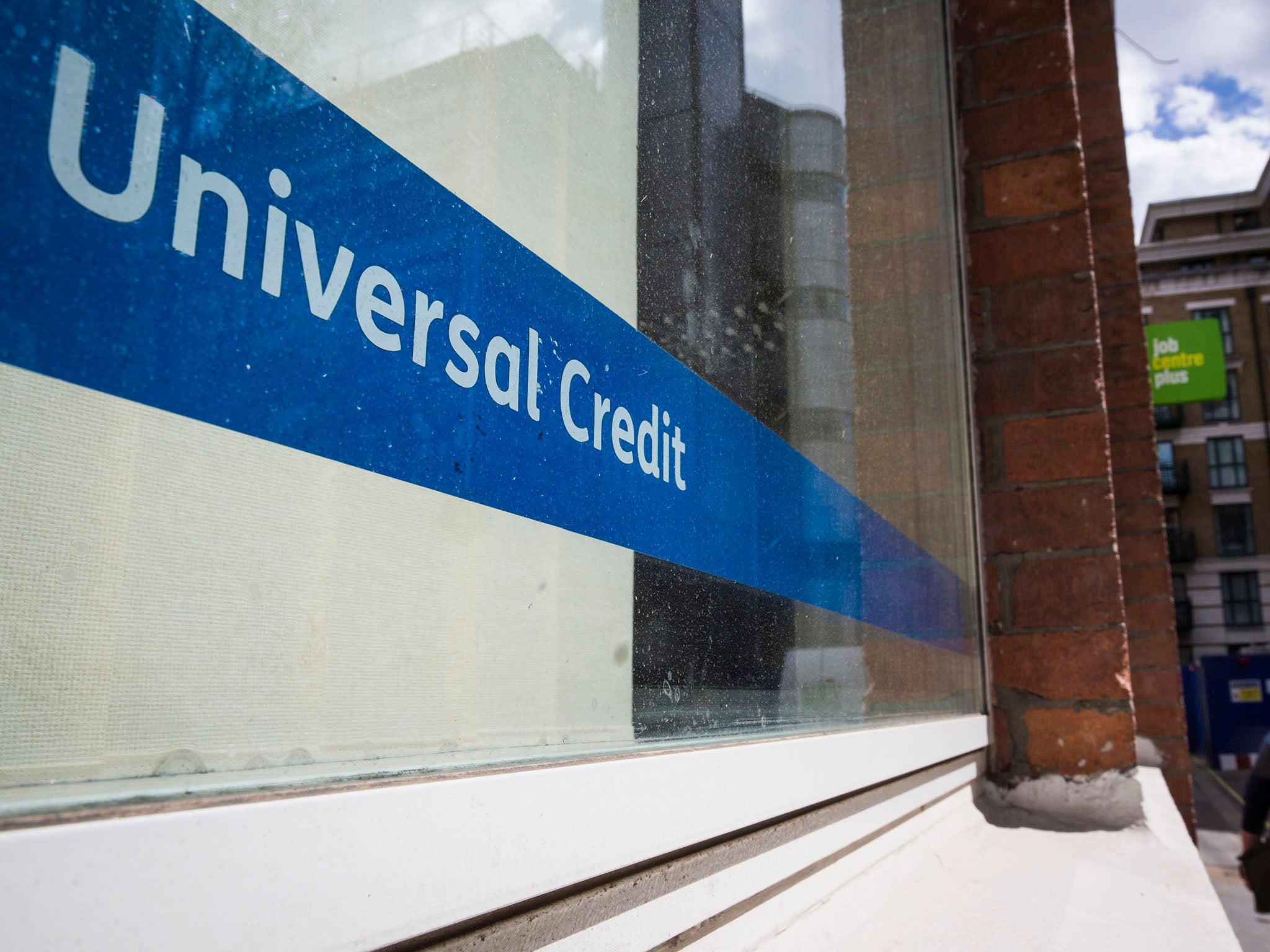Universal Credit linked to mental health problems for 63,674 people, study finds
Benefit system must be ‘fundamentally modified’ to reduce mental health harms, researchers conclude

Tens of thousands of people may have become clinically depressed as a result of universal credit, according to a study which says the welfare reform must be “fundamentally modified” to reduce mental health harms.
A report published in The Lancet found the introduction of universal credit was associated with a 7 per cent increase in psychological distress among recipients since the benefit was introduced – equivalent to an estimated 63,674 unemployed people.
Of these, over a third – or 21,760 individuals – may have become clinically depressed, according to the researchers from the University of Liverpool.
Universal credit was launched in April 2013 in a bid to simplify the benefits system and help more people into work, but it has been the subject of controversy from the start, with reports of long delays in payments and increased use of sanctions.
Replacing six existing benefits, the major welfare reform has been rolled out in stages, and by the end of 2018, 1.6 million people were receiving universal credit across England, Scotland and Wales – including 73 per cent of unemployed people, amounting to 990,000 individuals.
The study, which is the first of its kind to quantify the possible impact of the new benefit on mental health, followed more than 52,000 working-age people to compare changes in psychological distress before and after the reform was rolled out in their local authority area.
People out of work with a disability were excluded because they claim disability benefits, rather than unemployment benefit, and were not enrolled onto universal credit at the time of the study.
The report concluded that ministers should assess its effect on the wellbeing of benefit claimants amid concerns that the roll-out could exacerbate pressures on already stretched mental health and social care services.
Dr Sophie Wickham from the University of Liverpool, who led the research, said: “Our study supports growing calls for universal credit to be fundamentally modified to reduce these mental health harms.
“So far, the government has only looked at the impact of universal credit on the labour market, and there are no plans to assess its effect on health and wellbeing. With a further 5.5 million recipients of existing benefits expected to claim universal credit over the next few years, this expanding group may exacerbate pressures on already stretched mental health and social care services.”
Professor Dame Margaret Whitehead, co-author and also from the University of Liverpool, said that given the “mounting evidence of substantial mental health harms related to universal credit”, it was “crucial” that the government conducted a robust health impacts assessment of all welfare reforms.
Senior author Professor Ben Barr, from the same university, said the findings had international importance for health professionals responding to the rising mental health needs of populations and for policymakers weighing up the costs and benefits of changes to welfare policies.
Charities supporting people on universal credit welcomed the report, saying they were seeing claimants suffer deteriorations in mental health and calling for “radical solutions” to prevent the benefit increasing levels of anxiety and stress among low-income families.
Iain Porter, policy and partnerships manager at the Joseph Rowntree Foundation, said: “Delays in payments, the complexity of the claiming process and the unpredictability of financial support is forcing too many people into a corner leaving them facing impossible situations.”
He warned that unless ministers made “urgent reforms” to universal credit, there was a real risk of confidence and trust in the system being irreversibly damaged.
Ayaz Manji, senior policy and campaigns officer at Mind, said the government must stop “punishing” disabled people with sanctions, which he said had not had the desired effect of motivating people back into work – instead causing claimants fear, anxiety and further hardship.
“It’s wrong that the benefits system, which should support all of us who need it, is causing psychological distress among people who need support. We need to see radical solutions to ensure that the benefits system plays its part in helping people stay well,” he added.
A spokesperson for the Department for Work and Pensions (DWP) said: “This research does not prove that people are experiencing distress due to the design of universal credit.
“People coming to the jobcentre are often doing so at a difficult time in their lives, and there is a range of support available for those with mental health conditions. We know that the vast majority of people on universal credit are satisfied with their experience.”
Subscribe to Independent Premium to bookmark this article
Want to bookmark your favourite articles and stories to read or reference later? Start your Independent Premium subscription today.

Join our commenting forum
Join thought-provoking conversations, follow other Independent readers and see their replies